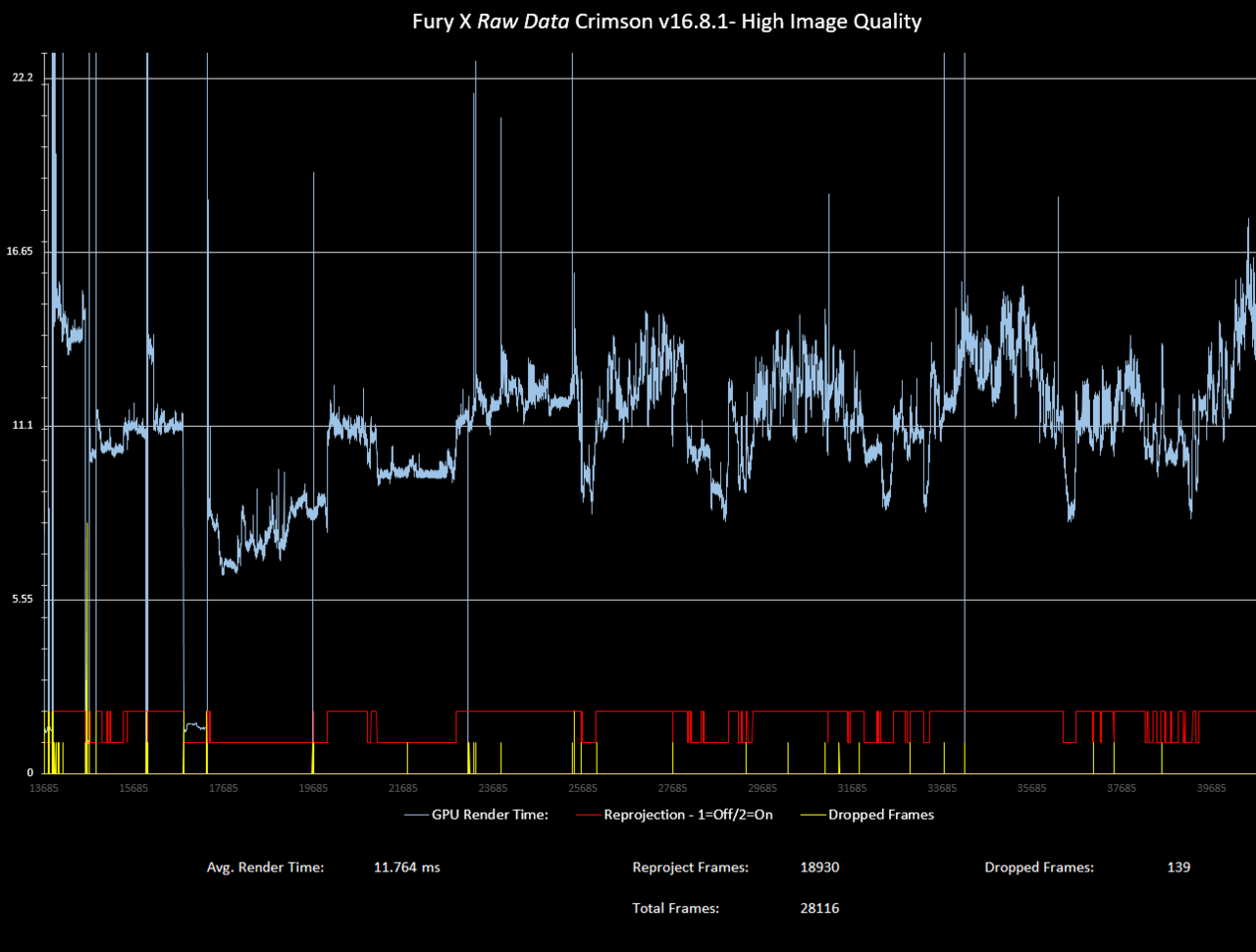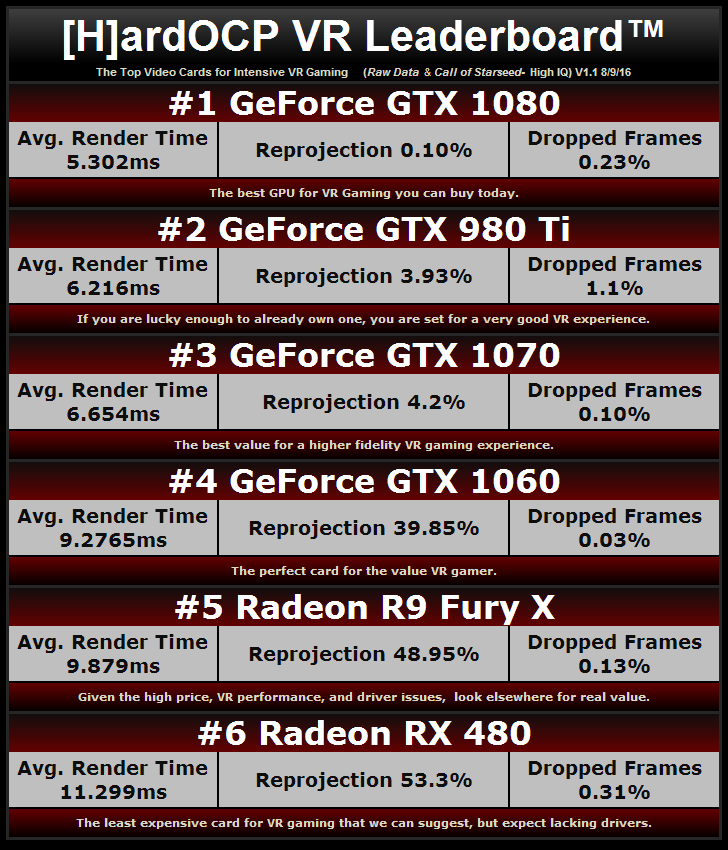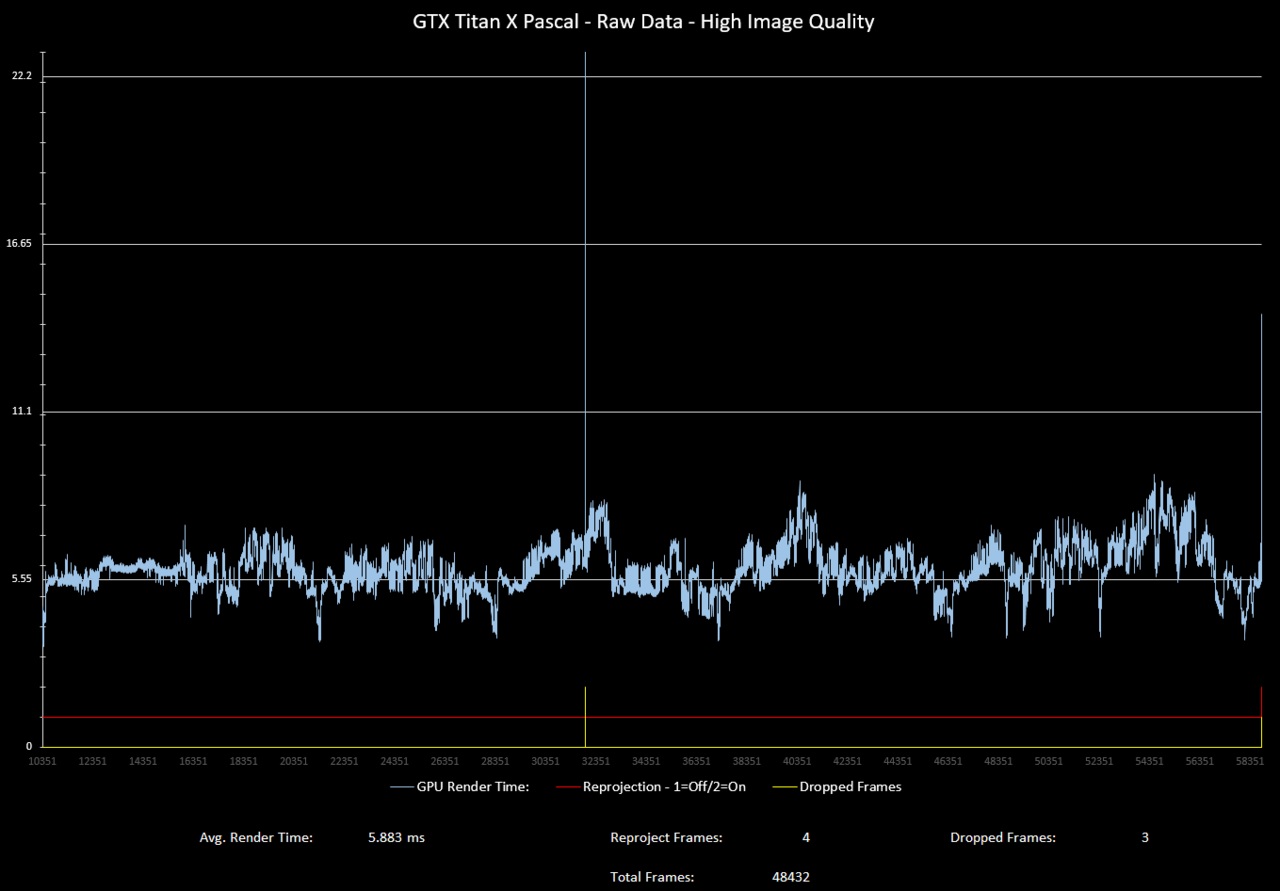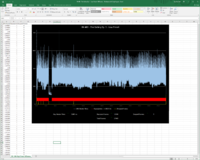Navigation
Install the app
How to install the app on iOS
Follow along with the video below to see how to install our site as a web app on your home screen.
Note: This feature may not be available in some browsers.
More options
You are using an out of date browser. It may not display this or other websites correctly.
You should upgrade or use an alternative browser.
You should upgrade or use an alternative browser.
AMD and NVIDIA GPU Vive VR Performance in Raw Data @ [H]
- Joined
- May 18, 1997
- Messages
- 55,601
Please tell me what games and what engines we should be looking at since you disagree with our statements. I would very much like specifics, thanks.I am curious about the claim unreal engine is that important. I don't know any unreal engine games I am looking forward to in the near future. Most are based on in-house engines. I will assume this is talking about VR, but its likely a symptom of the uncertain nature of it all. Unreal is a cheaper investment but I don't expect it will dominate the better VR games to come.
- Joined
- May 18, 1997
- Messages
- 55,601
Well you said you are curious as to UE4 being "that important" in VR. Tell me what else to look at since you are suggesting that we are on the right track. (Yeah, I am getting tired of this "what if" narrative. This is the CURRENT state of VR. And current state is what we have always covered. Real games, real gaming, today. )Not saying you should change. But its worth putting things in perspective. It is what it is, can't be bent to be representative of what other games will bring. You can say this is what to expect of unreal engine gameworks VR games.
- Joined
- May 18, 1997
- Messages
- 55,601
For those of you thinking I had some motives in picking this game, this was the ONE big reason outside of its graphical scaling abilities.
'Raw Data' Early Access Debuts At #1 On Steam Top Sellers
"Raw Data’ Early Access Debuts At #1 On Steam Top Sellers"
Ninja Edit: Worth mentioning is that July 14th was the day I wanted to start testing and its rating on Steam is what made me go ahead and decide to use it.
'Raw Data' Early Access Debuts At #1 On Steam Top Sellers
"Raw Data’ Early Access Debuts At #1 On Steam Top Sellers"
Ninja Edit: Worth mentioning is that July 14th was the day I wanted to start testing and its rating on Steam is what made me go ahead and decide to use it.
Last edited:
- Joined
- May 18, 1997
- Messages
- 55,601
Yes, this is all pertaining to VR. Brent is still doing desktop GPU.I said I was curious about the claim of UE4 being that important (in general). I said after that you must be talking about VR specifically. If its whats being used in these current VR games, sure. Most of them are pretty light looking. eg. this game is a shooting gallery. I guess "duck hunt" in VR is one of the things we can expect for now.
You can check out Unity Engine games here. Made with Unity It looks like The Gallery is likely the most GPU intensive at this time going by spec listings on Steam. I reached out to the guys at Unity to see if I could get some feedback from them. We will see.
Nice review, very interesting.
Also interesting is that the 10xx series of cards are not using Simultaneous Multi Projection yet.
The 1070 should have nailed the 980ti but is a tiny bit slower!
SMP was touted as a huge feature of pascal.
Are you aware of why this isnt in use yet?
Obduction VR game will probably be the 1st game to use SMP.
But even this may just be early days as they mention it boosts performance up to 30%, but that is still very useful considering Async Compute gives on average 10-15% boost (most forget the low level Intrinsic Function extensions add a lot for AMD in Vulkan Doom).
Cheers
DementedOne
n00b
- Joined
- Aug 3, 2016
- Messages
- 2
I'm playing around with Raw Data and the Steam VR performance graph which shows when reprojection is on while in game and I cannot turn the settings low enough in the game to get reprojection off. I have a 1060 GTX AIB card clocked at 2050/4500(which is pretty good), I register a 10,080 in the Steam VR performance test which is about ~6% slower than a stock 1070. I'm now wondering if my CPU is somehow causing an issue. How long should my CPU be taking to render these frames on the perf graph? I'm using an older 3570K i5 but I'm not really boosting it up.
Excellent write up! I would love to see more testing being done with Multi-Res setting though, like at each pre-set with the different cards, very interesting stuff. I'm currently running my 1070 (oc'd) at Epic (1.5x) and it seems to be fine for like 90% of the game. But reading this article makes me think that it's probably utilizing re-projection quite a bit, gonna have to re-run those levels with the diagnostics going to find out for sure though.
- Joined
- May 18, 1997
- Messages
- 55,601
I'm playing around with Raw Data and the Steam VR performance graph which shows when reprojection is on while in game and I cannot turn the settings low enough in the game to get reprojection off. I have a 1060 GTX AIB card clocked at 2050/4500(which is pretty good), I register a 10,080 in the Steam VR performance test which is about ~6% slower than a stock 1070. I'm now wondering if my CPU is somehow causing an issue. How long should my CPU be taking to render these frames on the perf graph? I'm using an older 3570K i5 but I'm not really boosting it up.
All good to hear brother. This is all new to me too. Just trying to break it down to be simplistic rather than needing a Comp Sci degree to understand it. I am sure our format will evolve.Sorry for late reply. Their graphs seem more rudimentary. Yours give a wider picture of what's happening. On the other hand, I am not used to interpret frametime graph effortlessly, the way I can interpret a framerate graph. That's not a criticism, just observation.
Reading through this thread there are a couple of things that stick out to me.I get what your saying about raw data. It is too early to test though. Really, come on... If someone is buying a $700+ card, they are buying to keep it for a while. An investment. It is a little early to be pushing what is best for VR at this moment.
First, the intention of a review is for potential customers to understand how that products work, now. VR may be in it's infancy relative to gaming as a whole but there are real people spending real dollars on hardware to use it now, and saying it's "too early" to test VR or that the landscape is not fair to a particular manufacturer is wholly irrelevant if the products are already for sale. If AMD has poor support for UE4 that's their problem to deal with, it's not Kyle's responsibility to find equally optimized games to test. In fact it would be doing his readership a disservice if he were to artificially pick games that aren't reflective of the actual market.
Secondly, people who spend $700 on a GPU aren't (usually) buying them as an investment. The people buying halo cards are those with disposable income and probably upgrade every cycle. That market segment - early adopters and enthusiasts - are the main purchasers of VR tech right now.
Yep, I bought 980Ti on release for roughly $800 dollars only to sell it one year later for $470 and buy 1080 for $900. Great "investment"Secondly, people who spend $700 on a GPU aren't (usually) buying them as an investment. The people buying halo cards are those with disposable income and probably upgrade every cycle.
(these are Polish prices which include 23% VAT and do not account for exchange rate fluctuations)
EDIT: way to increase performance in Raw Data:
Last edited:
Hello Kyle! I am from Russia and currently assembling a computer for vr. I dont have much money so I am planning to buy osvr hdk2. I bought almost all parts except VR display and videocard. Your review was really helpful because:
1. everybody says that both RX480 and 1060 are good enough for VR without providing any numbers in tests
2. there are almost no VR tests. All I can find as monthly-old articles which are more ads than tests.
The thing is that I dont have big room and aim for seated vr experience. I am planning to play games like elite:dangerous and skyrim/fallout. I see that you have chosen one of the most hardware demanding VR game and low price cards are bad in it. I cant afford 1080 and barely can afford 1070 (I would have to take a small loan to buy it). Can you do the test of RX480 /1060 in low-demanding games? How will they work with old games like skyrim (with use of vireio or some other driver)? I think many people would like to play old games in VR with low budget but also having more or less good performance. If you cannot spend that much time, can u suggest how bad/good that cards will behave?
Thanks for the good test,
Michael.
1. everybody says that both RX480 and 1060 are good enough for VR without providing any numbers in tests
2. there are almost no VR tests. All I can find as monthly-old articles which are more ads than tests.
The thing is that I dont have big room and aim for seated vr experience. I am planning to play games like elite:dangerous and skyrim/fallout. I see that you have chosen one of the most hardware demanding VR game and low price cards are bad in it. I cant afford 1080 and barely can afford 1070 (I would have to take a small loan to buy it). Can you do the test of RX480 /1060 in low-demanding games? How will they work with old games like skyrim (with use of vireio or some other driver)? I think many people would like to play old games in VR with low budget but also having more or less good performance. If you cannot spend that much time, can u suggest how bad/good that cards will behave?
Thanks for the good test,
Michael.
MavericK
Zero Cool
- Joined
- Sep 2, 2004
- Messages
- 31,890
Yep, I bought 980Ti on release for roughly $800 dollars only to sell it one year later for $470 and buy 1080 for $900. Great "investment"
(these are Polish prices which include 23% VAT and do not account for exchange rate fluctuations)
EDIT: way to increase performance in Raw Data:
Nice for solo users but sucks for anyone wanting to spectate.
Michaelius
Supreme [H]ardness
- Joined
- Sep 8, 2003
- Messages
- 4,684
Is that internet first VR game test with actual benchmarks? I don't remember anything else with actual proper testing.
- Joined
- May 18, 1997
- Messages
- 55,601
There is one more I have seen but it is even more narrow.Is that internet first VR game test with actual benchmarks? I don't remember anything else with actual proper testing.
- Joined
- May 18, 1997
- Messages
- 55,601
Not just VR - PREMIUM VR, that was their spiel. 480 offers premium VR experience.VR for the masses lol.
http://www.amd.com/en-us/press-releases/Pages/radeon-rx-480-2016may31.aspx
Nenu
[H]ardened
- Joined
- Apr 28, 2007
- Messages
- 20,315
There used to be a Premium cat meat that was pretty poor.
Because of that I grew up thinking premium meant crap.
Maybe I wasnt the only one
Because of that I grew up thinking premium meant crap.
Maybe I wasnt the only one
Activate: AMD
[H]ard|Gawd
- Joined
- Nov 6, 2004
- Messages
- 1,994
There used to be a Premium cat meat that was pretty poor.
Because of that I grew up thinking premium meant crap.
Maybe I wasnt the only one
No you aren't the only one... I buy my cat meat from only the most reputable sources
Definitely interested to see the testing continue. Between VR and DX12, this is probably the biggest state of flux I've seen in terms of performance testing/benchmarking for the PC gaming world. It'll be nice when the tools catch up and consensus is built up around certain methods. Hopefully the number of armchair reviewers will drop a bit once that happens, since it just tedious right now.
- Joined
- May 18, 1997
- Messages
- 55,601
Here is the only other one I could find that was actually looking at performance, but I think they were measuring using fraps on what was on the desktop monitor...which has nothing to do with what is going on in the VR headset. I could be wrong though. NVIDIA GTX 1080 Performance Review: Head to Head Against the 980 Ti - Page 3 of 3 - Road to VRIs that internet first VR game test with actual benchmarks? I don't remember anything else with actual proper testing.
Malurt
n00b
- Joined
- Jul 12, 2016
- Messages
- 24
I like how 1 sample of an early access game using an in-development engine is enough for you to make up such a conclusionAfter all the blather about how "next generation" superiority favored AMD, once again turns out to be hot air.
with the RX 480 I did notice some texture flickering that was not present on the GTX 1060, oops.
- Joined
- May 18, 1997
- Messages
- 55,601
Going to look at it in the morning. Raja said new drivers should make it better but there did not seem to be a relationship with the dev according to his tweet.
That comment was from StarSeed and not Raw Data which uses UE4 which may reflect other VR games using UE4 as well. Something AMD I think needs to address better if still having the low performance issues.umm...
pendragon1
Extremely [H]
- Joined
- Oct 7, 2000
- Messages
- 52,028
you didn't mention what game you were talking about and the last thing mentioned was starseed. so...
anyways, kyle said he'll retest so we'll find out when he's done.
anyways, kyle said he'll retest so we'll find out when he's done.
Because this thread is about Raw Data. Kyle was just confusedyou didn't mention what game you were talking about and the last thing mentioned was starseed. so...
anyways, kyle said he'll retest so we'll find out when he's done.
pendragon1
Extremely [H]
- Joined
- Oct 7, 2000
- Messages
- 52,028
now I'm confused... 
- Joined
- May 18, 1997
- Messages
- 55,601
"AMD hate"
Shintai
Supreme [H]ardness
- Joined
- Jul 1, 2016
- Messages
- 5,678
LOL! Always an excuse.
- Joined
- May 18, 1997
- Messages
- 55,601
Meant to look at RD again today, just got Red cards back on the bench. I can peek at perf in the morning. I will put the Fury X in, should be easy to see, but Raja said there is work to be done on the dev end and it sounded like there was no relationship there.
That has to get old, hate crap. From what I observe your reviews change with the facts found good or bad. AMD maybe should just come clean and tell folks what plays good and what needs some work and stop the pointless attacking of true data/results when it does not align for a rosy AMD story. I guess it could be amusing or funny as well, kinda hard to argue with real facts. In any case HardOCP has much respect/love for their readers by putting out some good to great down to earth reviews coming out of the box and in a real computer and session experience. Hope you guys are having fun in the end.
- Joined
- May 18, 1997
- Messages
- 55,601
OK, went back and spot checked the Fury X with the new 16.8.1 Crimson Driver in Raw Data. Sorry, took me a couple of extra days. The Fury X with the new driver is still slower than the GTX 1060. We are still in Reprojection about 67.33% of time compared to 98% before. GPU Render time is down to 11.764ms compared to 13.296ms previously. So yes, the new driver helped, but not enough to actually change anything gameplay-wise or in terms of our VR Leaderboard.
At the end of the day, this still puts the Fury X behind the GTX 1060 in terms of GPU Render Time in Raw Data. AMD and Radeon Technologies Group still have a lot of driver work to get done.


At the end of the day, this still puts the Fury X behind the GTX 1060 in terms of GPU Render Time in Raw Data. AMD and Radeon Technologies Group still have a lot of driver work to get done.


- Joined
- May 18, 1997
- Messages
- 55,601
TITAN X Pascal Update for Raw Data.


- Joined
- May 18, 1997
- Messages
- 55,601
Radeon RX 480 Raw Data update with 16.8.1 driver. For all intents and purposes, no change with the new driver. Less than 2%.


MavericK
Zero Cool
- Joined
- Sep 2, 2004
- Messages
- 31,890
Thanks for going back and adding those tests - puts a lot of the rumors and speculation to rest.
There have been lots of performance improvements in Raw Data, update 0.5 was specifically focuses on optimization:
http://store.steampowered.com/news/?appids=436320
Maybe you could do a follow-up?
http://store.steampowered.com/news/?appids=436320
Maybe you could do a follow-up?
MavericK
Zero Cool
- Joined
- Sep 2, 2004
- Messages
- 31,890
Yeah, I need to give this game a try this weekend and see if anything has improved. Survios said they were going to stop focusing on new features for now and focus on optimization. They also got a $50 million investment recently so hopefully good things are in the future for this game and company.
![[H]ard|Forum](/styles/hardforum/xenforo/logo_dark.png)
